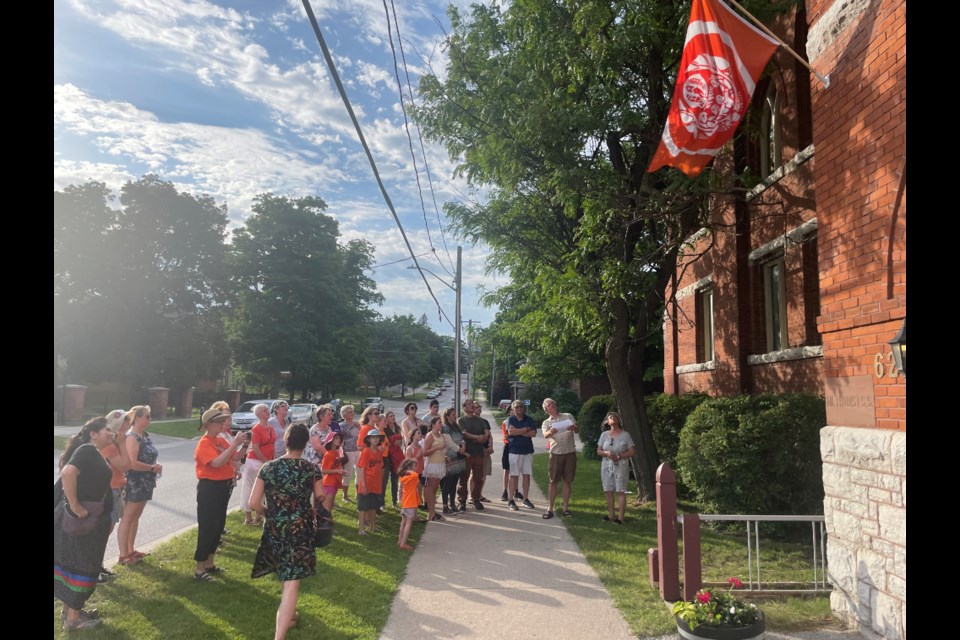In honour of National Indigenous Peoples Day, St. Paul’s Centre hosted a ceremony Tuesday night in remembrance of the children of Canada’s residential school system as part of its ongoing efforts to build a positive future through reconciliation.
The church unfurled a survivors’ flag from the National Centre for Truth and Reconciliation, and buried hundreds of orange ribbons previously displayed in remembrance of the unmarked graves discovered at many of Canada’s residential schools since 2021.
Community members gathered at the church to hear statements from elder John Rice and Cynthia Wesley-Esquimaux and before burying hundreds of ribbons, offering tobacco, and unfurling the survivors’ flag.
Following a statement by Minister Ted Reeve, Rice opened the ceremony with a healing song.
“This song is about letting go of what you don't want to carry forward, and then looking to the new way forward, or way of looking at things,” Rice said. “We have to take care of things and let go and there has to be reconciliation.”
Displayed on the church peace pole for more than a year, the ribbons representing the unmarked residential school graves had grown tattered. Reeve said that he consulted with Rice, who suggested they return the ribbons to the land.
“There were 300 to 400 ribbons that were tied there on the peace pole (in) symbolism of our solidarity with first peoples and the whole residential school response,” Reeve told OrilliaMatters.
“A year later, the ribbons are looking a bit tattered (so) part of the ceremony ... is to take the ribbons from the pole and return them to the land. That's kind of a symbolism of them having served their symbolic purpose in returning to the land, but the memory will live on," he explained.
“(We’re also) unfurling the flag, which will fly outside of St. Paul's as a symbol of our ongoing solidarity and recognition of the need for reconciliation, and also the need for moving forward in building new relationships with the first people of this community.”
Since formally apologizing about its participation in residential schools in 1986, Reeve said the United Church has actively worked to heal its relationship with Indigenous peoples.
“The United Church … participated like other churches in the residential school program over the first half of the 20th century, and so we recognized our error in thinking about First Nations people as needing to be like us,” Reeve said. “It's important for the church to acknowledge when it's been wrong, and to apologize and to work concretely to reconcile and find new ways forward.”
Wesley-Esquimaux said she donated the survivors’ flag to the church in recognition of their efforts in reconciliation.
“(I gave the flag) to this church because they've done so much for reconciliation work and truth, and the stories that are told here,” she said. “They really are a lovely community hub, and the ceremony is very important because you don’t just do something halfway – it needs to be completed.
“It creates some closure for the church and creates some understanding in the community that is attending.”
